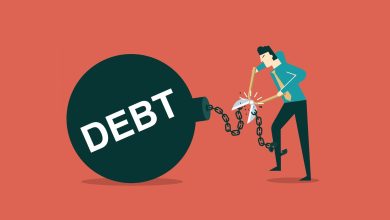How to Create a Budget for Beginners
A budget is a plan for how you will spend your money. It can help you track your income and expenses, reach your financial goals, and avoid debt. Creating a budget can seem daunting, but it’s actually quite simple. Here’s a step-by-step guide for beginners:
1. Calculate your net income.
This is the amount of money you have left after taxes and other deductions are taken out of your paycheck. To calculate your net income, you can use your pay stub or online banking account.
2. Track your spending.
For one month, track all of your expenses, including fixed expenses (like rent, utilities, and car payments) and variable expenses (like groceries, entertainment, and gas). You can use a budgeting app, spreadsheet, or simply write down your expenses in a notebook.
3. Categorize your expenses.
Once you have a month’s worth of spending data, categorize your expenses into different areas, such as housing, food, transportation, and entertainment. This will help you see where your money is going.
4. Set financial goals.
What do you want to achieve with your money? Do you want to save for a down payment on a house? Pay off debt? Retire early? Once you know your goals, you can start to create a budget that will help you reach them.
5. Create your budget.
Now it’s time to put your budget together. Start by adding up your fixed expenses. Then, allocate money to your different expense categories based on your financial goals. Be sure to leave some money for unexpected expenses and savings.
6. Review and adjust your budget regularly.
Your budget is a living document, so it’s important to review and adjust it regularly as your income and expenses change.
FAQs
Q: What is the best budgeting method for beginners?
A: There are many different budgeting methods out there, but the simplest one is the 50/30/20 rule. This rule allocates 50% of your income to needs (like housing and food), 30% to wants (like entertainment and dining out), and 20% to savings and debt repayment.
Q: What should I do if I’m overspending in a certain category?
A: If you’re overspending in a certain category, try to find ways to cut back. For example, if you’re spending too much on groceries, try cooking at home more often or buying in bulk.
Q: What if I have unexpected expenses?
A: It’s important to have an emergency fund to cover unexpected expenses. Aim to save at least 3-6 months of living expenses in your emergency fund.
Q: What are some tips for sticking to my budget?
A: Here are a few tips for sticking to your budget:
- Be realistic when setting your budget goals.
- Automate your savings and bill payments so you don’t have to think about them.
- Track your spending regularly and make adjustments as needed.
- Don’t be afraid to say no to yourself when you’re trying to save money.
Budgeting can be a challenge at first, but it’s worth it in the long run. By following these steps, you can create a budget that will help you reach your financial goals.




